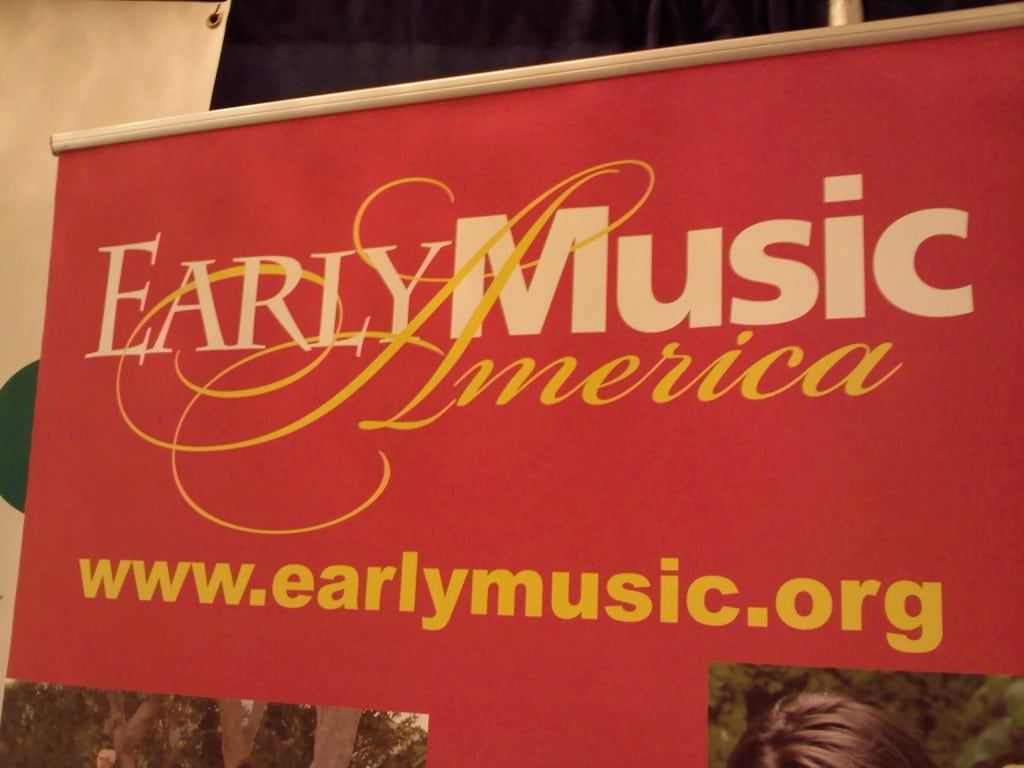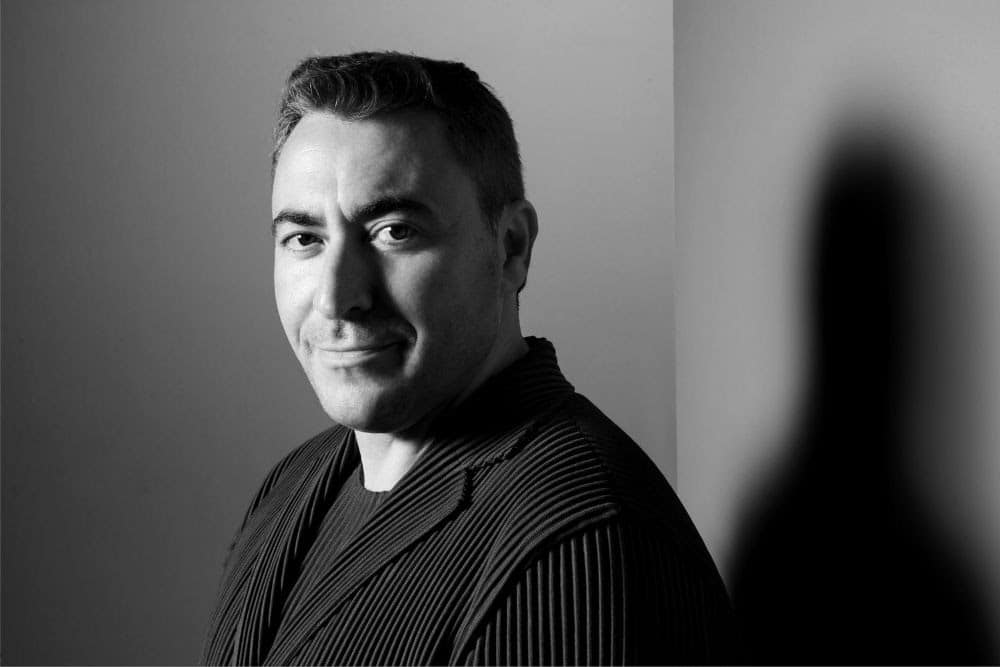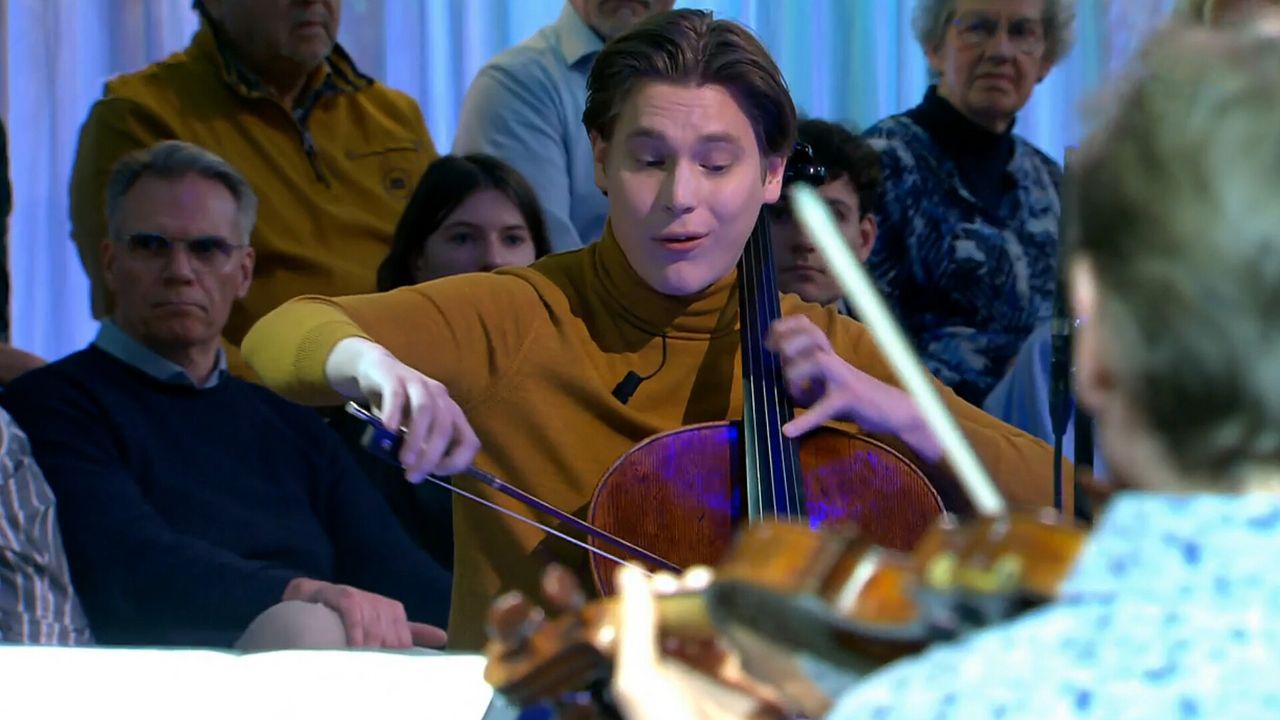Early music fades in Toronto
NewsThe Toronto Consort has cancelled its two remaining concerts this season.
It attributes the decision to ‘financial prudence and community engagement’ – meaning, the money’s run out and nobody’s coming through the door.
The problem is not an isolated one.
Early music worldwide has struggled to recover its pre-pandemic audience. There’s not enough personality or conviction in the sector in 2024.
Discuss.






The generation that made early music a thing (starting in the late sixties/early seventies) has either passed away or is well into retirement. Likewise, the audiences that were young at the same time have not been joined by younger faces, and are well into old age (not just middle age).
On the one hand I do wish the early music people well, even if so much of their repertoire is frankly not worth listening to more than once. On the other, I do wish they would just lay off the likes of Haydn, Mozart and Beethoven with their HIP precepts which have become seemingly mandatory in all orchestral performances of their works. The homogenizing effect that HIP has wrought in the orchestral performances of those composers’ works has had a deleterious effect on imaginative interpretations, with only a few, seemingly reactionary conductors daring performances that sound any different than the ever “fleet” HIP-approved norm. I’ve had enough of their dessicated-sounding strings and rushed slow movements. When is the backlash ever materializing against the HIP orthodoxy, especially in Beethoven, whose music has suffered the most under their now-30-year reign?
This reality must be devastating to a small group of entitled elitists.
What do you mean by that?
I don’t think there is much to generalize from here. The Toronto Consort suffers from being in the shadow of Tafelmusik, which has a much higher profile (and has been basically sold out every time I’ve attended since the pandemic ended).
About the final comment, for my money, if there is just one sector of classical music that has personality and conviction right now, I would say it’s precisely early music, although it’s almost entirely happening in Europe (mostly in France these days, I would say). North American ensembles are not remotely competitive.
I think we need a more precise definition of what constitutes Early Music. The French ensembles I get to see and hear tend to start with Lully and Charpentier and mebbe Henri Dumont from the previous generation. Does this constitute Early Music?
Not really. The Italians were the great influencers -the Camerata represented amongst others by Vincenzo Gallilei, himself a Madrigal composer. He wrote a ‘Dialogue of ancient and Modern Music’. He bewailed the lack of emphasizing the meaning behind text, and this led to early operatic forms-the single line melody with accompaniment. Lully(1632-87) was born Italian- but moved to France -kitchen boy, violinist, dancer , and the rest. Wrote music for Molliere’s the plays and then Kings favourite.
the Gabriellis’life-span 1510-1612, Andrea being taught by Willaert at St Marks Venice,of which both directed respectively. That is a century before Lully and the rise of Early Baroque. The UK enjoyed Byrd and Bull, and Gibbons, while Sweelinck did as much as any to develop early keyboard , and taught Bull. Religious persecution abounded. when Lully was 8yrs old we were executing our King. Its important to gain a time narrative before deciding what is Early Music and Early specific styles eg Baroque early or later. Fashions change – . For me there is tremendous excitement in early music .
“Early music” is generally considered to include any European art music before at least 1750 — and, depending on whom one asks, beyond that to 1800 and even through Beethoven if period instruments are being used.
‘Barber shop’ is a great American tradition ? I love ,also, the instantaneous effects of singers invading a public place and unknown to the rest of the crowd there strike up music – often a popular work – and players of instruments add to the number, spontaneously, and a great performance is experienced. Do this ,maybe, with Early Music 1480-1600 eg (!) and watch the foot -tapping and awe.
This is nonsense. Apollo’s Fire, The Haydn and Handel Society, the Smithsonian Chamber Music Society, Piffaro, and Les Violons du Roy are as good as any in Europe.
“The Toronto Consort suffers from being in the shadow of Tafelmusik, which has a much higher profile”
This is sad, because the two groups’ repertories really don’t overlap much.
“if there is just one sector of classical music that has personality and conviction right now, I would say it’s precisely early music,”
That and new music, at least in the US (certainly the Northeast Corridor and California. Slipped Disc readers may not like all (or even much) of it, but there’s more activity, and more audience acclaim, in the past 15 to 20 years that I had seen in the entire rest of my life. Some groups (e.g., Bang on a Can in New York, The Crossing in Philadelphia) have very enthusiastic fan bases.
“although it’s almost entirely happening in Europe (mostly in France these days, I would say).”
France above all, yes (Pygmalion, Ensemble Correspondances, Le Poème Harmonique, and there’s a crop of younger groups), but also Switzerland (Gli Angeli Genève, Sollazzo Ensemble), the Low Countries (Vox Luminis, Netherlands Bach Society, Utopia) and the Czech Republic (Collegium 1704, Cappella Mariana, Collegium Marianum — and please don’t make me call it Czechia).
“North American ensembles are not remotely competitive.”
Oh, some of them are definitely as good (though in some there’s been a certain settling into routine). Blue Heron’s Ockeghem chansons are as good as anyone’s anywhere, for instance, and Voices of Music’s YouTube channel has 434,000 subscribers. But North American groups don’t have (or no longer have) prominent record labels or national radio broadcasts to help make them better-known or even the concert-presenting infrastructure that their European counterparts have. (For instance, New York Polyphony sings more often in Germany than in New York.)
Bland stone-age music – nothing akin to the Deller Consort or the Purcell Consort of Voices – and personality.
One thing that occurs to me, is that Early Music lacks the international visionaries it once had – Alfred Deller, David Munrow and Christopher Hogwood to name three, alas all now dead. Deller recorded prolifically during the 1960s and 70s, releasing many albums showcasing the Medieval and Renaissance songbook through his astonishing counter-tenor voice. Munrow put early music on the international map during the 1970s until his untimely death aged only 34 in 1976. Able to perform on scores of ancient instruments, his double LP Instruments of the Middle Ages and Renaissance for EMI was an international best seller and came with a 100 page book within the boxed set. Hogwood took up the mantle a few years later and together with is Early Music Consort of London performed prolifically all over the world and released numerous recordings on the Lyrebird label, distributed worldwide. Soprano Emma Kirkby, a frequent Hogwood collaborator, is still active however at 75, she must be nearing retirement.
There are still good and even visionary leaders. The problem is that the classical recording industry, which made stars of Deller, Munrow, and Hogwood (and Harnoncourt and Savall and Peter Phillips and so on), can no longer make stars. That entire ecosystem has changed too much.
I am the board president of an early music ensemble, and our audiences have rebounded very nicely since the end of the pandemic. I do not understand what you mean when you say there is “not enough personality or conviction.” Perhaps you are referring to yourself.
If you had balls, you would give your name before disparagiing others
Maybe that person doesn’t have balls…..oh….maybe you meant that metaphorically……..
Careful, Norman. You are coming dangerously close to emulating the review of a recent Makela recording by Big Dave from Classics Today, which he illustrated with a Ken doll naked from the waist down …
Oh, please, can we state our opinions without abandoning all sense of class?
Too many early music ensembles? They sprouted up like dandelions for a while. Hopefully the best will survive.
Given all the competing Christmas concerts, would there be enough concertgoers who would choose a night out of barebone Medieval music over the standard festive Baroque fare? I remember hearing a concert decades ago featuring just a tenor and a lira da braccio performing Medieval music. They were technically excellent but the music soon became monotonous. Maybe they will need to “sell out” and perform late Renaissance and Baroque music.
That the members of the Toronto Consort find the ensemble is in financial distress signals how COVID19 continues to erode the cultural fabric and related musical training institutions in Canada. It is time for our various levels of government to reach out with funding to support the arts as the general economy regains strength. As orchestras, opera and ballet companies are whittled away by boards and politicians, we are in danger of losing our connections with the cultural heritage and institutions that nurture our souls and justify our freedoms.
The people will pay for what they want to hear and see.
Not excessive prices. The center of their audience are now seniors. Getting around is far more difficult & their finances are now fixed, at a rate that was prepandemic. Just look at the cost of groceries, but pensions have not risen to keep pace, so something has to be cut.
I guess thats progress..
New executive director with a newly created diversity work on the season. What could go wrong?
If they don’t have the money then they should just pay the musicians in kind. They should be doing that anyway since that’s how musicians were paid in the baroque era. Every musicians would get a bottle of mead and some barley and pork fat. However it would not be fair unless principal players were paid a premium so they would also get a goat.
The early music movement began (approximately)with Arnold Dolmetsch when he lost his rare Baroque recorder on the train and decided to make a new one. At about the same time there was a revival of interest in the harpsichord and in many aspects of Renaissance and Baroque musical performance practices regarding phrasing, articulation, dynamics, ornaments, etc. in order that so-called early music could be performed more in keeping with the style of music known to the composers of those epochs: i.e., people got interested in hearing J.S. Bach as he himself might have played it on Baroque violin, harpsichord or organ rather than on contemporary instruments including the piano, an instrument for which Bach actually composed no music. There was a peak of interest in historical instruments in the late 1970’s and into the ’80’s but, since that time, some of the enthusiasm has gradually waned in the classical listening musical audience. The interest is still there and will, no doubt, increase again but, at present, the number of scheduled concert events may have to be reduced. Some of the best performers (Ralph Kirkpatrick, Gustave Leonhardt, Scott Ross et al.) have gone to their graves and cannot be replaced. But, as long as people are still interested in authentic historical performance practice, there will still be audiences. Not everyone wishes to hear Baroque music played inauthentically with hard, percussive attacks on the keys, misguided articulation and pedalling (something J.S. Bach would never have dreamt of) and, for that audience, some brave musicians are still willing to perform and I, for one, will sincerely appreciate their efforts!
As far as I can tell, the peak of interest in original instruments and historically informed performance practices aligned with the peak years of production of compact discs, the 1990s. During those years I was recording concerts for the San Francisco Early Music Society and working at a CD store that specialized in Early Music. Deller and Munrow were influential in the 1960s and 1970s, but interest really exploded during the 1990s with a plethora of performers making recordings and concertizing throughout the world. SFEMS had many concerts featuring internationally renowned performers and a Biannual Early Music Festival. While SFEMS still exists, and there will be an Early Music Festival this year, participation is much reduced. SFEMS now has a “pay what you can” policy. While I wouldn’t say the end is near I can say that things ain’t what they used to be.
Music is primarily entertainment and entertainers have a habit of overestimating their durability. You can become niche in your own lifetime so early music has had a good ride really.
Maybe this group had the bright idea to institute a “pay what you can” ticket policy. That policy is really dumb and has sunk several up and coming ensembles. Of course the boards of directors agreed to offer this hare-brained price structure. Too many socialite board members, too many woke.
Can’t speak about Toronto, but in the Washington DC area the early music concerts that I have attended had almost full houses. This includes the Washington Bach Consort and the Folgers Consort.